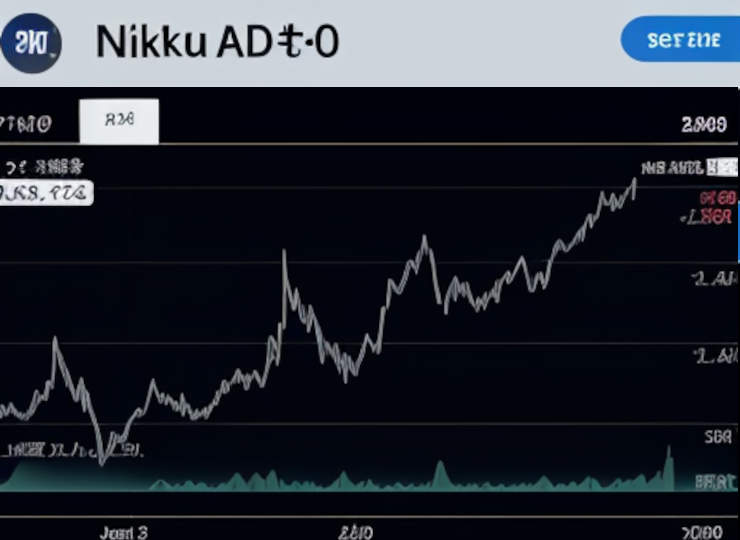文字のサイズ
- 小
- 中
- 大
The Nikkei Stock Average reached a new high!
The results of US semiconductor giant NVIDIA have exceeded analysts’ expectations, benefiting the The Nikkei 225 reached a new market high.

Tokyo Electron and other stocks that make up a high proportion of the Nikkei 225 led the index. Despite the good stock market performance and rising US interest rates, the dollar/yen did not gain much ground. It is not clear why the euro-dollar and other currencies are rebounding. However, the cross currency has been steady.
Since the dollar is not expected to fall significantly, the dollar and cross currency are probably pushing the dollar and cross currency lower. The term ‘risk-on dollar sell-off’ has also been heard, with the NZ dollar, etc. looking good.
Last week, the US stock market reacted to NVIDIA’s results, with IT stocks surging and the dollar basically steady. With the 10-year US interest rate trading at around 4.35%, it does not look like a bad environment for the dollar.
Strong AI-related companies are concentrated in the US, productivity improvements and a cornerstone of a strong economy. Cloud services are also concentrated in the US, so The balance of services is likely to be in deficit worldwide vis-à-vis the US. deficit is likely. The strength of the dollar likely to continue.
Japan will see wage increases in the future, normalisation of monetary policy. Japan is said to be in the process of normalising monetary policy, but will Japan be able to maintain its target inflation rate of around 2%? Can Japan maintain its inflation target of around 2%? Mr Kiuchi of Nomura Research Institute has expressed concern. Mr Kiuchi of Nomura Research Institute has expressed concern that a future decline in Japan’s inflation rate could lead to the normalisation of monetary policy. decline in the future, Japan could be a long way from normalisation. Japan’s inflation rate could move away from normalisation.
If a rate hike in Japan is far off, and a rate cut in the US is far off a US interest rate cut is far away, The dollar is still strong. ¥151 is just around the corner, The dollar is expected to remain strong.
The Japanese Ministry of Finance has suffered as a result. The Japanese Government has not been conscious about exchange rate levels for some time and intervened to sell dollars and buy yen at 151.95 yen in 2022, citing the speed of exchange rate fluctuations as a problem. Currently, the exchange rate is still above 150 yen and is one step closer to the intervention level.
However, the speed of exchange rate fluctuations is very different between the two years and now: two years ago, the yen was depreciating at a rate of 2-3 yen every day, but now the dollar is slowly appreciating, making it difficult to intervene at the same level.
At this juncture, March is also a difficult time to intervene in terms of timing, as it marks the end of the financial year for major Japanese companies, and any intervention by the Ministry of Finance and the Bank of Japan to buy the yen risks damaging the performance of Toyota and other exporters and causing the Nikkei Stock Average to plummet.
Then, if an exchange rate of 130 yen to the dollar is desirable for the Japanese economy, an early Bank of Japan interest rate hike is the only way to achieve this.






